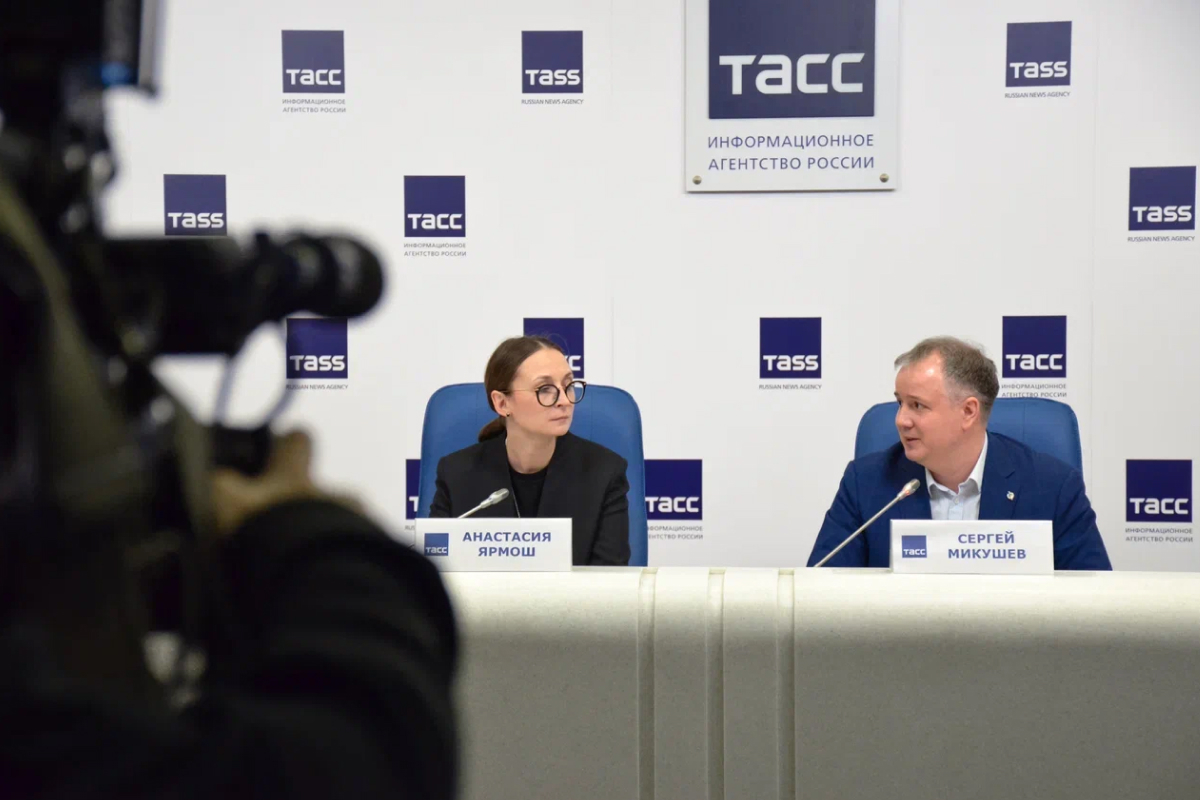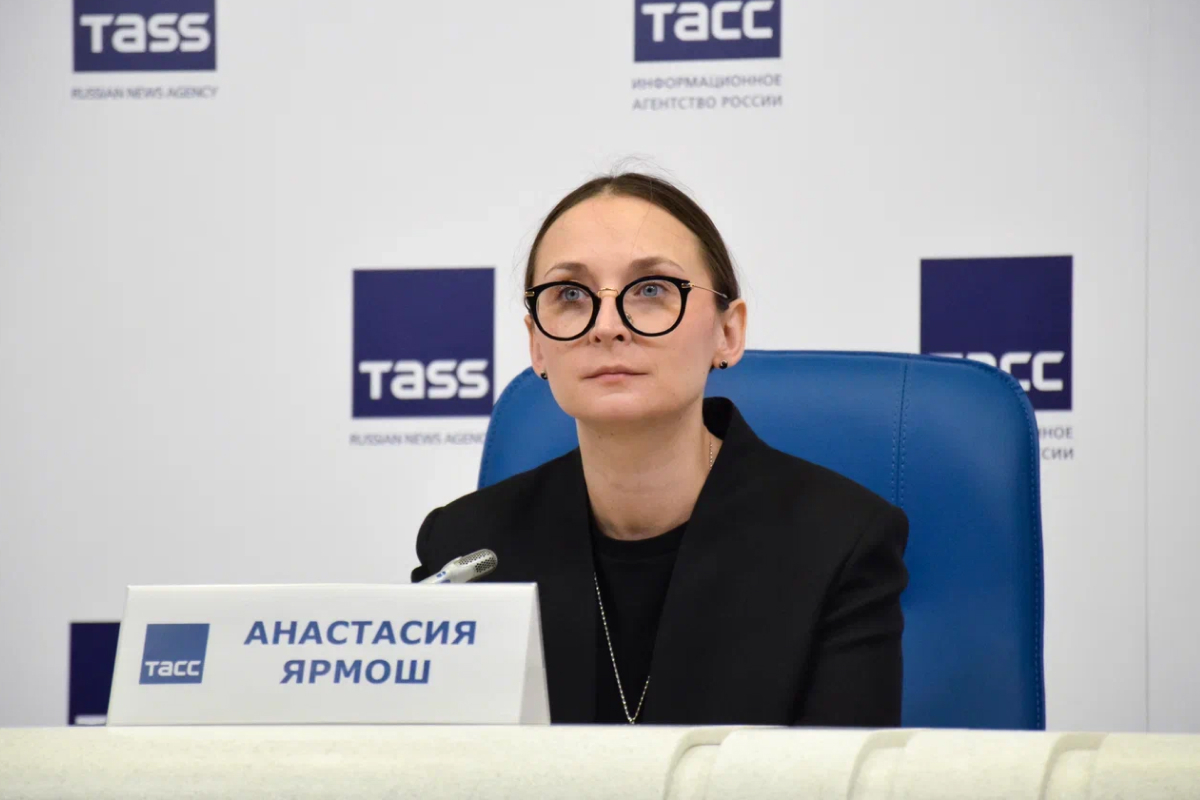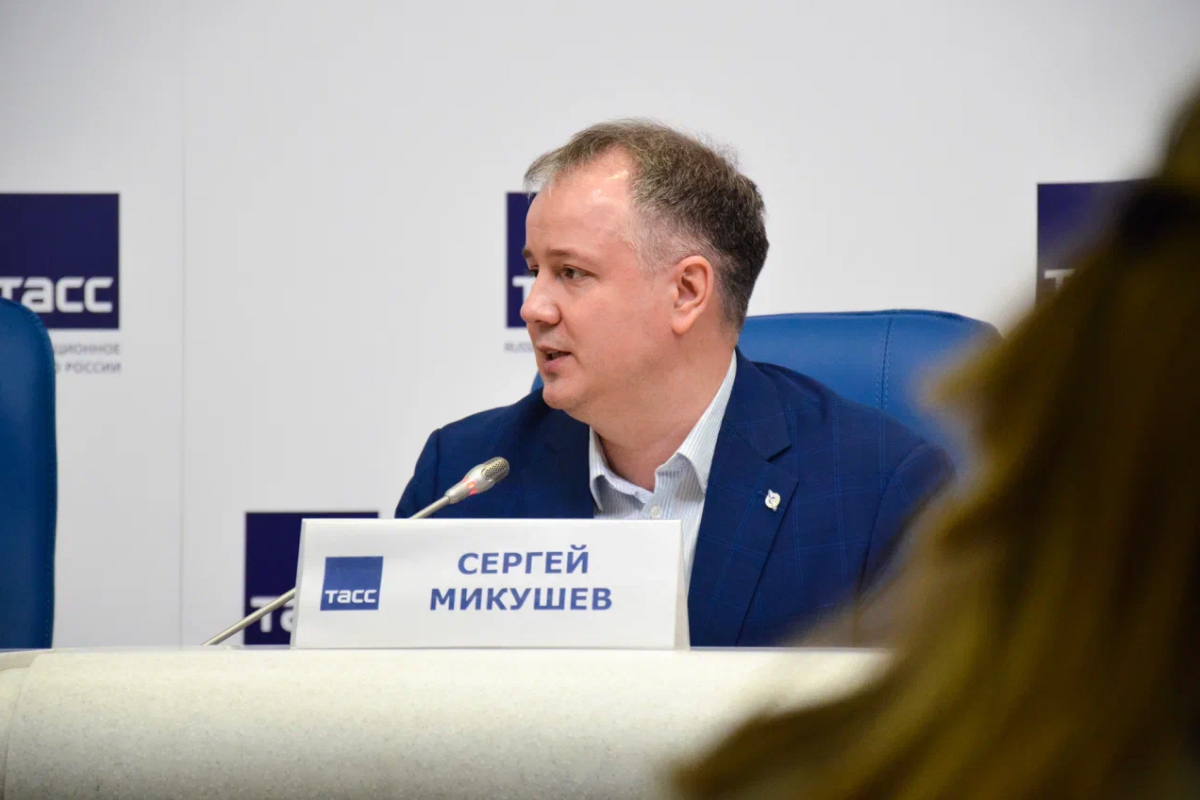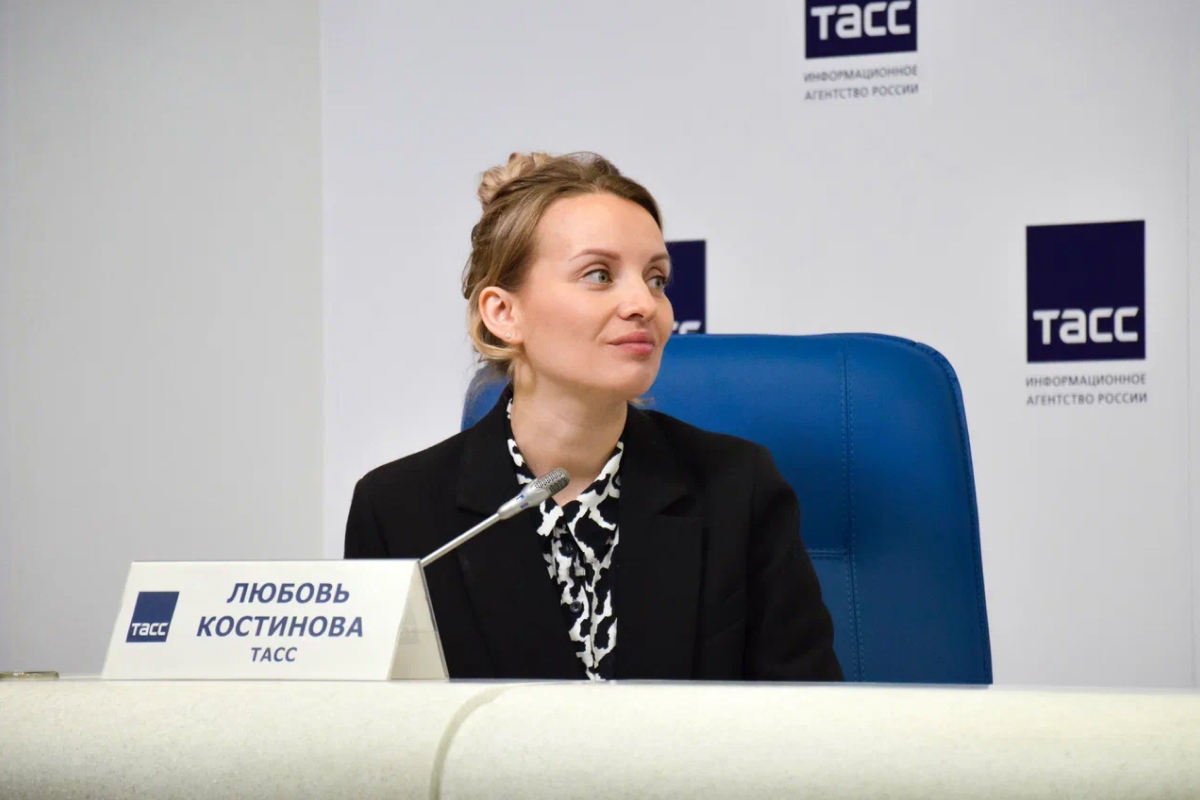From quantum technologies to AI: St Petersburg University marks 300 years with research milestones
St Petersburg University has summarised the outcomes of its 300th anniversary celebrations and presented the results of its research activities, highlighting promising directions for future development. During a press conference at the Russian News Agency TASS, Anastasia Yarmosh, Senior Vice-Rector for Strategic Development and Partnership, and Sergey Mikushev, Vice-Rector for Research, discussed major achievements in science and relevant research projects aimed at reaching the state’s strategic objectives.
The celebrations of St Petersburg University’s 300th anniversary engaged the entire city, becoming an integral part of its cultural life. One of the highlights of the anniversary year was the return of the University’s flag after travelling to the International Space Station. The flag handover ceremony took place on 11 February at St Petersburg University, with over 700 people in attendance.
The 300th anniversary was a significant milestone in St Petersburg University’s history, celebrated with an extensive programme of events. Ahead of us lie new and ambitious challenges: developing priority research areas; implementing new advancements in state industry; and creating innovative solutions to further advance Russian science and economy.
Anastasia Yarmosh, Senior Vice-Rector for Strategic Development and Partnership at St Petersburg University
At the press conference, it was announced that St Petersburg University is currently conducting research on atmospheric and climate models using a unique database of observations compiled since the 1980s. The University is also engaged in research and developments in artificial intelligence, focusing on creating customised tools for various tasks, and in quantum technologies, including quantum communication lines, quantum cryptography, and quantum computers. A notable accomplishment in this area is the development of a qubit based on polaritons, led by Alexey Kavokin, Senior Research Associate at St Petersburg University, who has headed the Uraltsev Spin Optics Laboratory for over a decade. Established with support from a mega-grant from the Government of the Russian Federation, the laboratory is now a leader in this research area.
"St Petersburg University successfully integrates fundamental research with applied developments for the real economy. The University has been establishing effective partnerships with Russia’s leading companies, serving as a qualified research partner. This unique cooperation model allows combining diverse expert perspectives to create solutions that meet the demands of multiple market players simultaneously," said Sergey Mikushev, Vice-Rector for Research at St Petersburg University.
St Petersburg University’s strategic business partners include leading companies across various fields, such as: Rosatom State Corporation; PJSC Gazprom; Gazprom Neft; ER-Telecom Holding; Lartech Telecom; Healbe Corporation; and many others.
Sergey Mikushev also noted that in 2024, St Petersburg University established the Advanced Engineering School "Interdisciplinary Research, Technologies, and Business Processes for the Mineral Resources and Raw Materials Sector of Russia". The school aims to produce highly educated and skilled engineers who will contribute to Russia’s technological sovereignty. The Laboratory of Geochemical Analysis of Petroleum is operating within the school. Equipped with modern Russian-made analytical equipment, the laboratory conducts research on composition of petroleum products and formation water. The research projects aim to address practical issues related to forecasting hydrocarbon accumulations, analysing the physical and chemical properties of hydrocarbons, and optimising petroleum production from various reservoirs.
St Petersburg University is actively involved in developing applied solutions using artificial intelligence. The University has established the Centre for Artificial Intelligence and Data Science, which focuses on creating large-scale self-organising adaptive and distributed digital platforms for the Artificial Intelligence of Things and industrial applications of this technology in the digital industry. Additionally, St Petersburg University has a research and education centre called "Mathematical Robotics and Artificial Intelligence". This centre unites researchers working on intelligent control, mathematical robotics, and educational robotics.
Sergey Mikushev underlined that a significant step in enhancing St Petersburg University’s research and development capabilities will be the establishment of the Neva Delta Innovative Science and Technology Centre. This project aims to accelerate the integration of Russian researchers’ innovations into manufacturing industry and bolster the country’s technological sovereignty. He stated, "The Neva Delta will be more than just a research centre — it will be an ecosystem designed for the successful implementation and commercialisation of Russian research developments. Innovative products will be created here, scientific breakthroughs will find practical applications, and the connections between science and industry will be strengthened. The project will significantly shorten the path from a scientific idea to a market-ready product."
The University places a strong emphasis on the developing interdisciplinary projects. An example of this approach is the joint programme with Sberbank in digital jurisprudence, which integrates the legal studies with artificial intelligence technologies. The master’s programme "Information Law and Data Protection" enables students to earn an additional qualification as a "Specialist in Intellectual Property Management and Technology Transfer". Currently, the University offers over 500 academic programmes. These programmes are designed based on the intersection of multiple fields of knowledge (for example, "Applied Mathematics, Programming and Artificial Intelligence"), the intersection of two or more professional fields (for example, "Business Information Analysis"), or the development of competences across several disciplinary areas (for example, the highly relevant programme today — "Bioinformatics").
The harmonious integration of exact and natural sciences with the humanities enables the creation of innovative solutions that address current economic challenges and needs. By implementing these projects, St Petersburg University will be able to remain at the forefront of scientific research and the education of highly qualified specialists.
Anastasia Yarmosh, Senior Vice-Rector for Strategic Development and Partnership at St Petersburg University
Anastasia Yarmosh also noted that the University is actively engaged in implementing key state initiatives, including the development of the creative economy and tourism. These initiatives align with Executive Order of the President of the Russian Federation No 309 dated 7 May 2024 "On the development goals of the Russian Federation through 2030 and for the future until 2036″. Additionally, St Petersburg University serves as a coordinator of interuniversity expert and analytical work. This work aims to develop proposals to align the legislation of the Russian Federation with the value-based provisions of Executive Order of the President of the Russian Federation No 809 dated 9 November 2022 "On approving fundamentals of state policy for preservation and strengthening of traditional Russian spiritual and moral values".
Summarising the key points of the press conference, the speakers emphasised that St Petersburg University aims to establish effective partnerships with Russia’s leading companies and actively participates in implementing major government initiatives. One of the University’s strategic goals is to develop practical solutions for the real economy.





